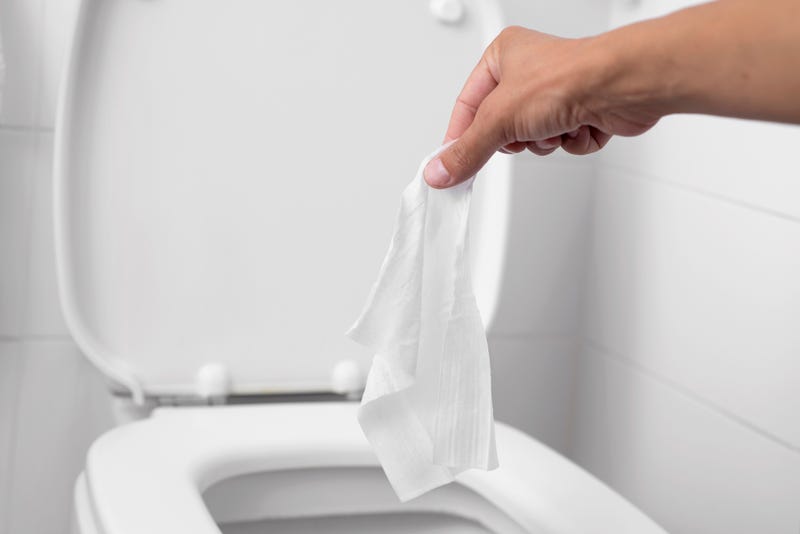
CHICAGO (WBBM NEWSRADIO) -- It’s been 18 months since the start of the pandemic and wastewater agencies are continuing to deal with the issue of people flushing “non-flushable” wipes down toilets.
The Northern Moraine Wastewater Reclamation District, serving eastern McHenry County, recently had to deal with what the Northwest Herald described as “a huge, nasty clog caused by wipes, often marketed as 'flushable.'”
The district has spent $37,000 on repairing or replacing pumps, about twice what it normally spends on the year, according to the Northwest Herald.
District Manager Mohammed M. Haque said “You just have to be respectful of what you flush down the drain. Unfortunately, these wipes are made of materials that are not biodegradable. It’s a bad habit to flush those. It’s causing chaos somewhere or another.”
They’re far from alone. Many districts have dealt with this issue for the last 18 months. In some cases, the source can be traced - large nursing homes, for example.
With the ongoing issues, Illinois lawmakers took notice and passed the Wipes Labeling Act. The act, signed into law by Governor Pritzker, takes effect next year and requires “Do Not flush” labels to appear on the packaging of wipes that not intended to break down in sewer systems.
“The General Assembly finds that creating labeling standards for disposable wipes products will protect public health, the environment, water quality, and public infrastructure used for the collection, transport and treatment of wastewater,” the law said.
Additionally, a wastewater agency in South Carolina sued a manufacturer that claimed its wipes were “flushable.” It’s about to be settled, setting standards of flushability and leading to changes in the business models of wipes makers to benefit the future of sewer systems, according to Brian Johnson, who serves on the wastewater association’s legislative committee and is executive director of the Greater Peoria Sanitary District.
“I never would have imagined 10 years ago all the issues that these things would cause. The pandemic made it worse by far,” Johnson told the Northwest Herald. “Manufacturers like (the one sued in South Carolina) saw a way to market their product and get a competitive advantage over other people and they did it.”

